Pilkington Prize 2021
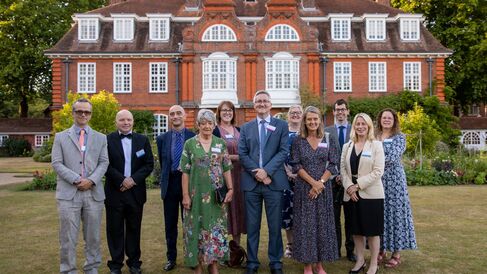
We celebrated this year's Prize Winners in a virtual ceremony held on Tuesday 29 June. The Vice-Chancellor, Professor Stephen J Toope, opened the ceremony with a message of congratulations and thanks to all thirteen Prize Winners, which can be viewed below. The Prizes were then awarded by Senior Pro-Vice-Chancellor for Education, Professor Graham Virgo.
We were delighted to also be able to welcome this year's Prize Winners to a joint celebration in 2022 at Newnham College, pictured above.
Please allow social and marketing cookies to show embedded content.
Prize Winners 2021
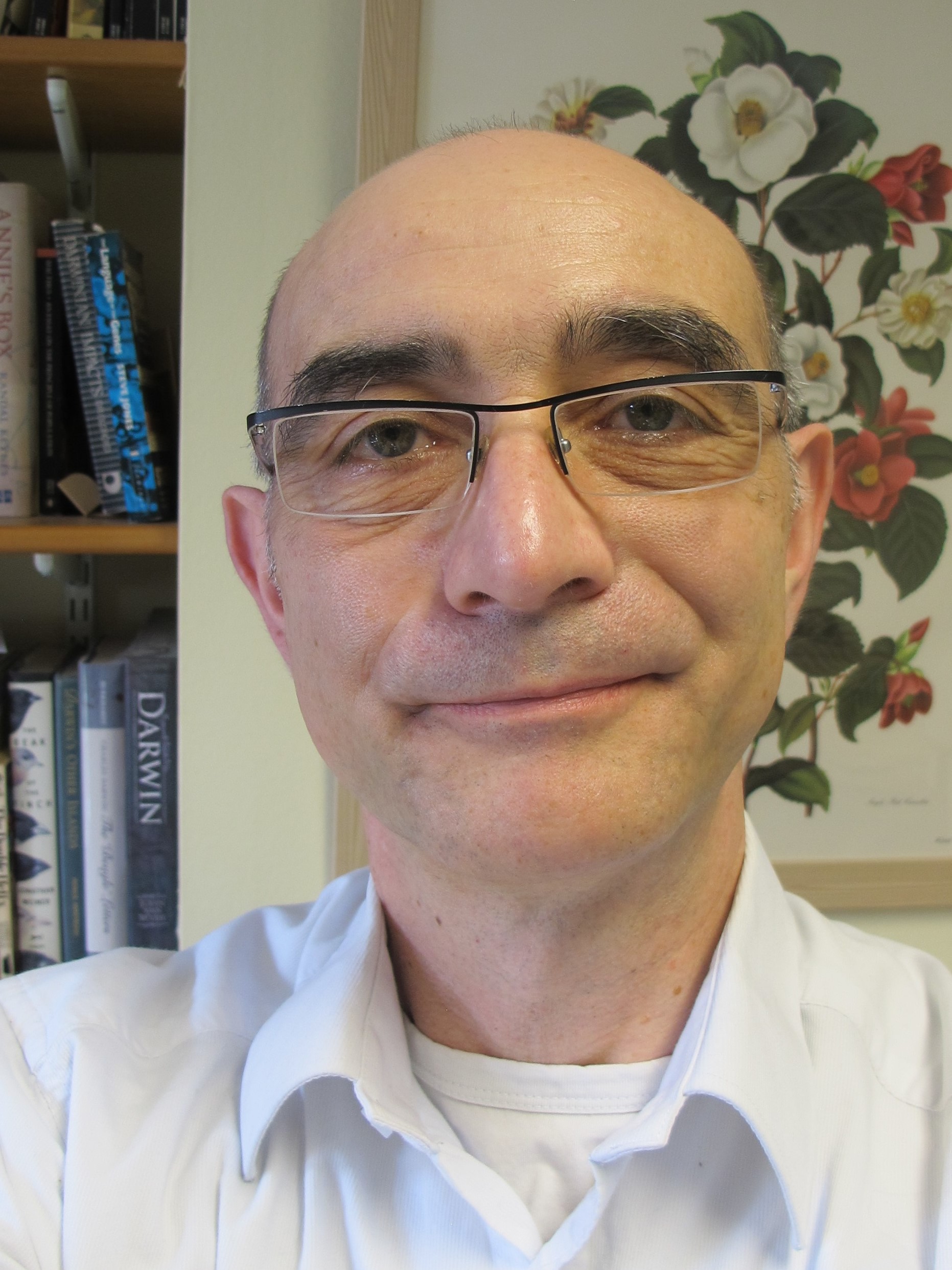 Dr David Clifford
Dr David Clifford
Faculty of English・Homerton College
Dr David Clifford’s unstinting dedication to his students is apparent in all areas: teaching, admissions and access. When he was promoted to College Senior Lecturer in 2018 the adjudicating committee assessed his teaching and care for his students, every year, as ‘exceptional’. Warm student testimonies speak repeatedly of how David has ‘gone the extra mile’ in enabling them to fulfil their potential. In 2019 he was awarded a Commendation at the CUSU Student-Led Teaching Awards.
He regularly revises his teaching curriculum, especially with an eye to access and diversity issues. David has always been committed to widening participation, giving pro bono summer school access talks every year and consultancy to the access organisation Inside Uni. For the Faculty he has been English Subject Convenor for undergraduate admissions since 2013 - a huge task and central for student access, which he undertakes with indefatigable enthusiasm and attention to detail. At Homerton College he has provided support and initiatives to enable students from economically-deprived backgrounds to flourish, and is proud that English offers have been made from Homerton to students of colour every year he has been Director of Studies. With College support, he plans a significant public event in 2022 to celebrate working-class student and staff achievement at the University of Cambridge.
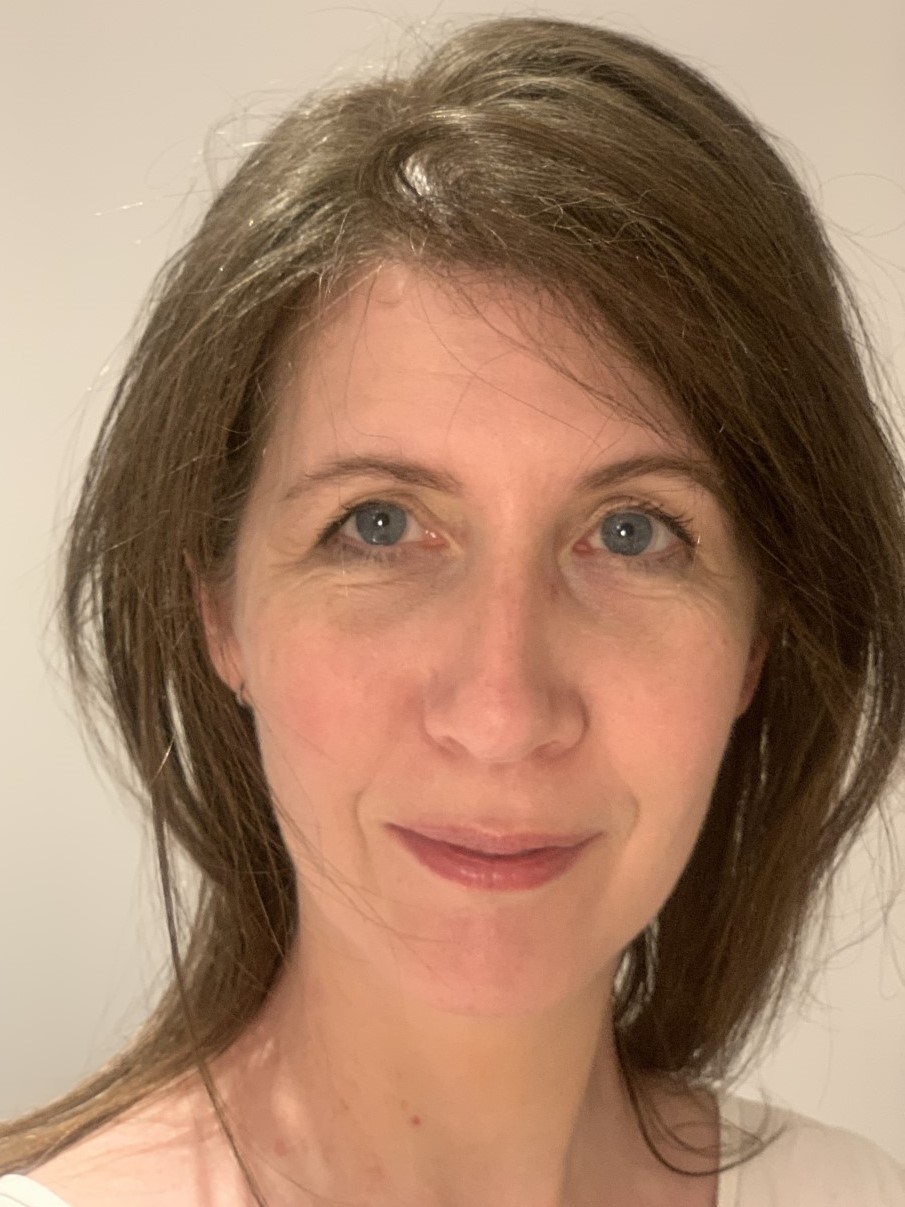 Dr Elizabeth Fistein
Dr Elizabeth Fistein
School of Clinical Medicine・Lucy Cavendish College
Dr Elizabeth Fistein joined the Clinical School in 2008. She is a popular and extremely effective teacher who facilitates many of the sessions within the teaching strands for which she is responsible. Her students describe her as a passionate teacher, enthusiastic, kind and inspirational. Elizabeth was instrumental in developing both the Medical Ethics & Law curriculum and the Professional Responsibilities curriculum at the School of Clinical Medicine, and has made a substantial contribution to the teaching programme at the School through these roles. She developed the Medical Ethics and Law curriculum as an integrated theme across the three years of the clinical course. This has been a very successful innovation and feedback from both the students and the faculty support the excellence of this programme.
Elizabeth has also established links with other UK Ethics and Law leads, allowing sharing of good practice across other schools, and organises exceptional faculty development for her team, ensuring the excellence of the course delivery. She has also overseen the development of, and delivered, the innovative Structured Essay Question Paper (SEQ) in the Final MB Part III exam, and is heavily involved in the School’s assessment process.
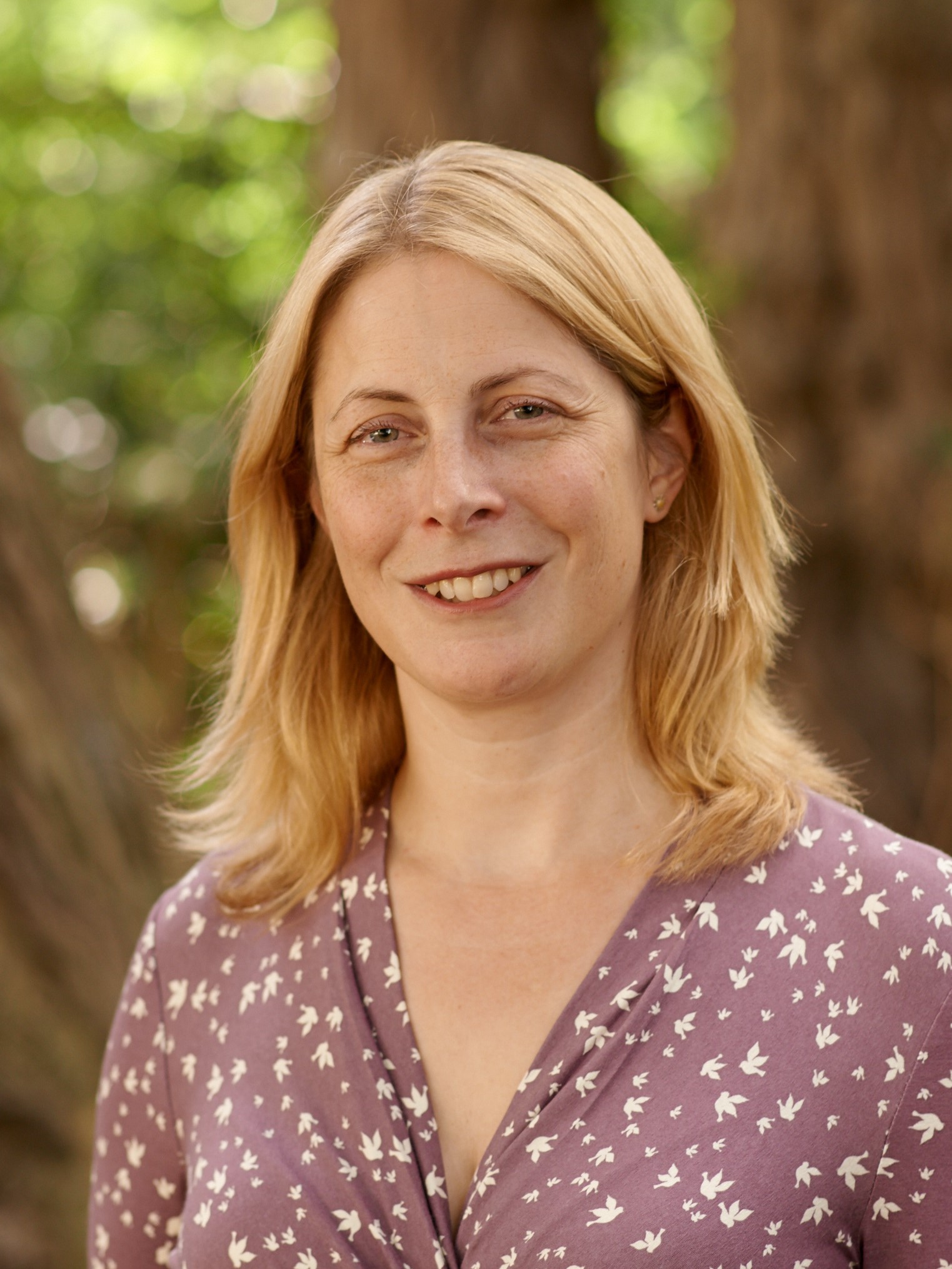 Prof. Beverley Glover
Prof. Beverley Glover
Department of Plant Sciences・Queens' College
There has never been a more important time to educate people about plants. Prof. Beverley Glover’s vision has been to deliver this education to as wide an age-range as possible, well beyond the limits of the Natural Sciences Tripos (NST). To this end, she has restructured and replanted the Botanic Garden – of which she is Director – to become a living educational aid with 12,000 school visitors a year, overseen by a dedicated Schools Officer. The Garden is now a teaching environment for all ages that also provides training for PGCE tutors and research students.
Beverley’s imaginative teaching encompasses NST Part IA, Part IB and Part II, the MPhil in Conservation Leadership, and a diverse range of non-Tripos teaching to external Higher Education groups and the public. She achieves consistently outstanding ratings in the 1A NST course Evolution and Behaviour, and this is a key reason why students choose to study Plant Sciences at 1B, helping to ensure that we educate the next generation of researchers contributing to global food security, conservation of biodiversity, and reducing our reliance on fossil fuels. In College, Beverley supports 1A biologists with a weekly study skills programme, and finally, her engagement with the BBC and the Royal Society ensures that her teaching can reach a global audience.
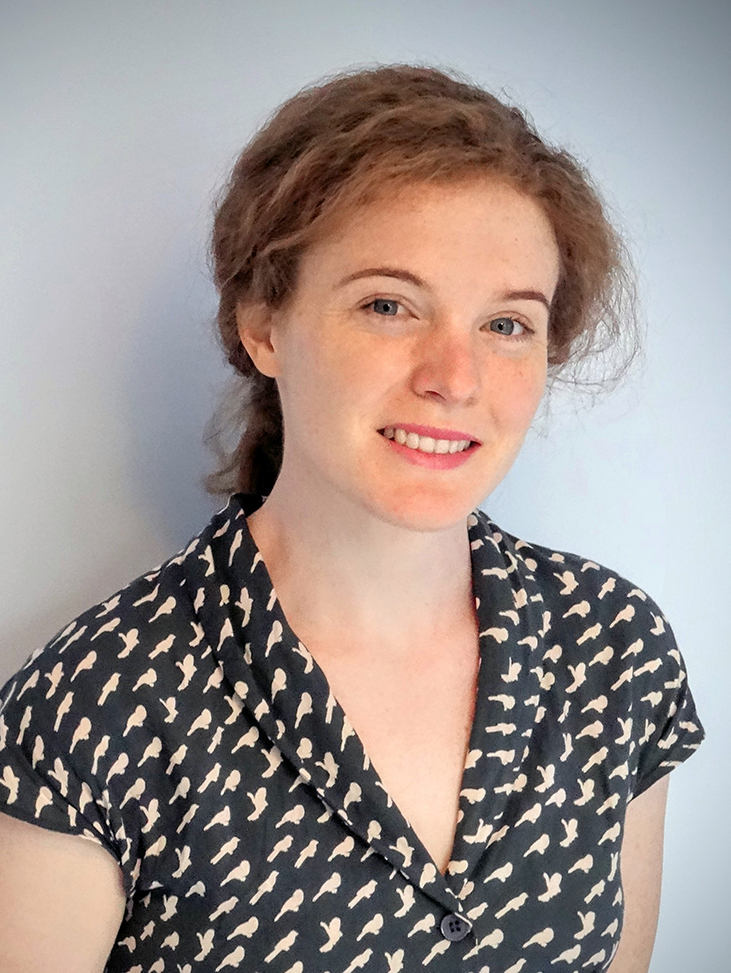 Dr Hannah Joyce
Dr Hannah Joyce
Department of Engineering・St John's College
Dr Hannah Joyce is a Fellow of St. John’s College where she is Director of Studies for second-year engineering students, and is a Reader in the Department of Engineering. She lectures on electromagnetics in the first year of the Engineering course and semiconductor engineering in the third year, for which she has received excellent feedback from the students - including some of the highest presentation marks in student surveys and nominations for ‘Best Lecturer’. Her engaging lecture style and clarity have been particularly appreciated, referencing both historical elements and popular culture. As a female engineer, she is a role model to the women students in the department.
Hannah is also committed to outreach though summer school activities and as the University coordinator for the UK Electronic Skills Foundation, which encourages undergraduates to apply for - and successfully achieve - UKESF scholarships. Finally, in addition to undergraduate teaching, she has run the postgraduate Researcher Development Course in the Electrical Division for over 5 years, enhancing the professional skills of research students.
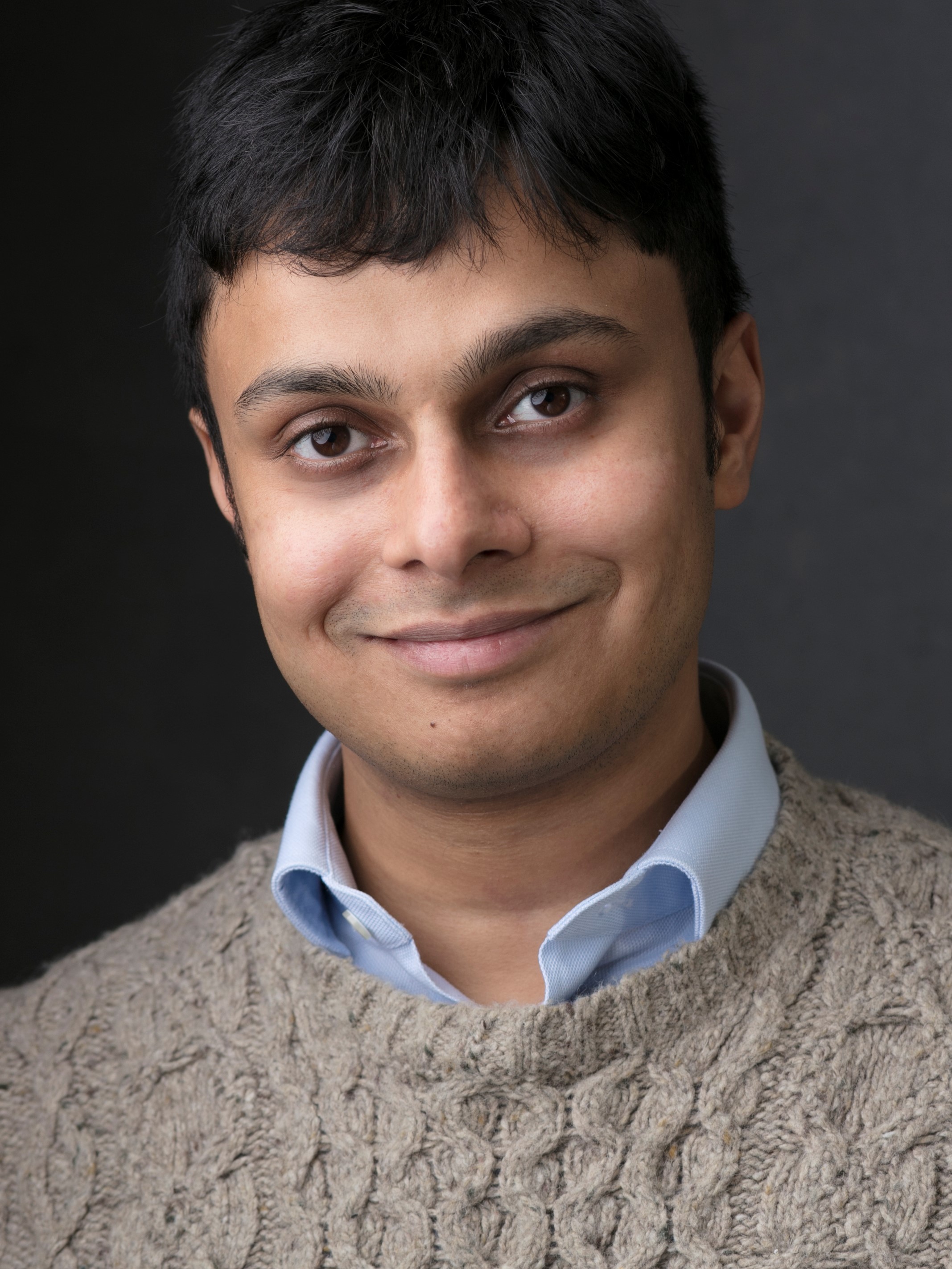 Dr Nikhil Krishnan
Dr Nikhil Krishnan
Faculty of Philosophy・Robinson College
Dr Nikhil Krishnan has made exceptional contributions to teaching in the Faculty of Philosophy and across the collegiate University, chiefly in ethics and the history of philosophy. An inspiring lecturer, he was nominated for a Student-Led Teaching Award in 2020. Active and in-demand as College supervisor and as Director of Studies, he is known for his commitment, empathy and effectiveness. Nikhil is able to build the confidence of students initially unfamiliar with philosophy, and has gone beyond the call of duty in helping students achieve their potential. His unique ‘Schmilosophy’ reading group has brought students and Faculty together to discuss texts outside the traditional canon of philosophy.
He has introduced new forms of enrichment and support for students and built up a library of resources to help introduce students systematically to the demands of postgraduate work. Warm testimonials from colleagues and former students testify to the significance of his contribution, as ‘consistently superlative’.
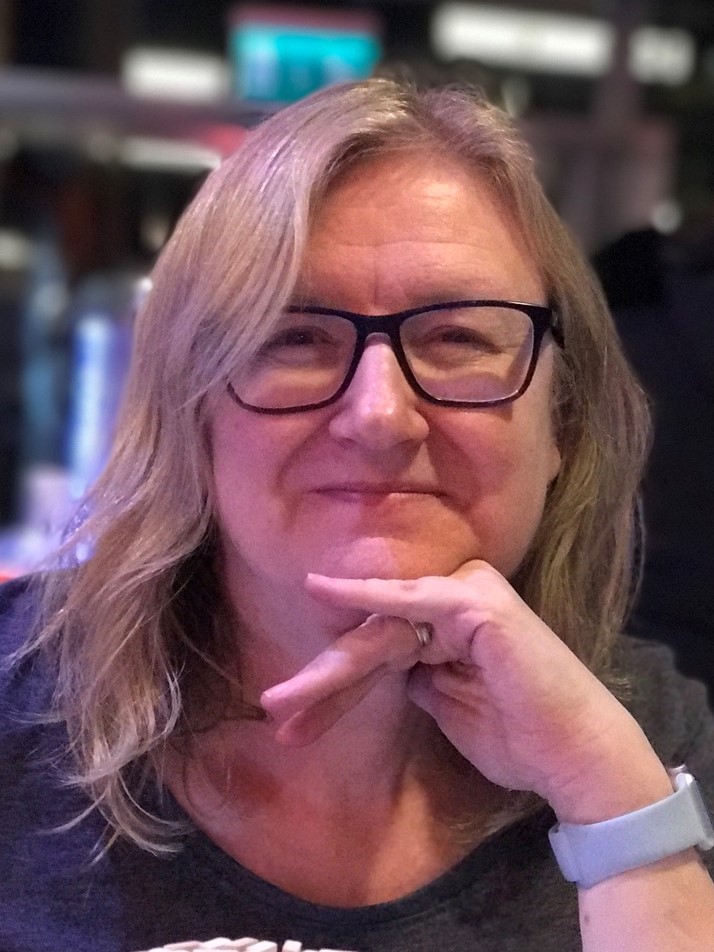 Hon. Prof. Clare Morris
Hon. Prof. Clare Morris
Institute of Continuing Education
Prof. Clare Morris, Senior Teaching Associate in Medical Education, has worked to lead, create and deliver the Institute of Continuing Education’s postgraduate diploma and masters programmes in medical education. The medical education portfolio is now recognised as a regional beacon and leading national provider.
Clare personifies so many key traits of a superb educator in the continuing professional development field. First and foremost, she works to build inclusive communities of learning. This enables medical and healthcare professionals to learn from their peers and extended professional networks as well as her expertise. Clare’s knowledge base, professional experience and superb team-teaching-based approach highlight to students the range of educational approaches available to healthcare professionals instructing the next generation of clinicians. She is now growing a pool of expert tutors from programme alumni, evidencing her commitment to mentoring and engaging with a vital aspect of lifelong learning as progression from novice student to expert teacher is realised.
Clare engages collaboratively with the School of Clinical Medicine and NHS, has developed course progression pathways to respond to employer and student demand and reacted to the Covid challenges faced by clinical students with empathy and agility. Clare is a continuing educator to her very bones, and we at ICE are fortunate to benefit from her dynamism, professionalism and wisdom.
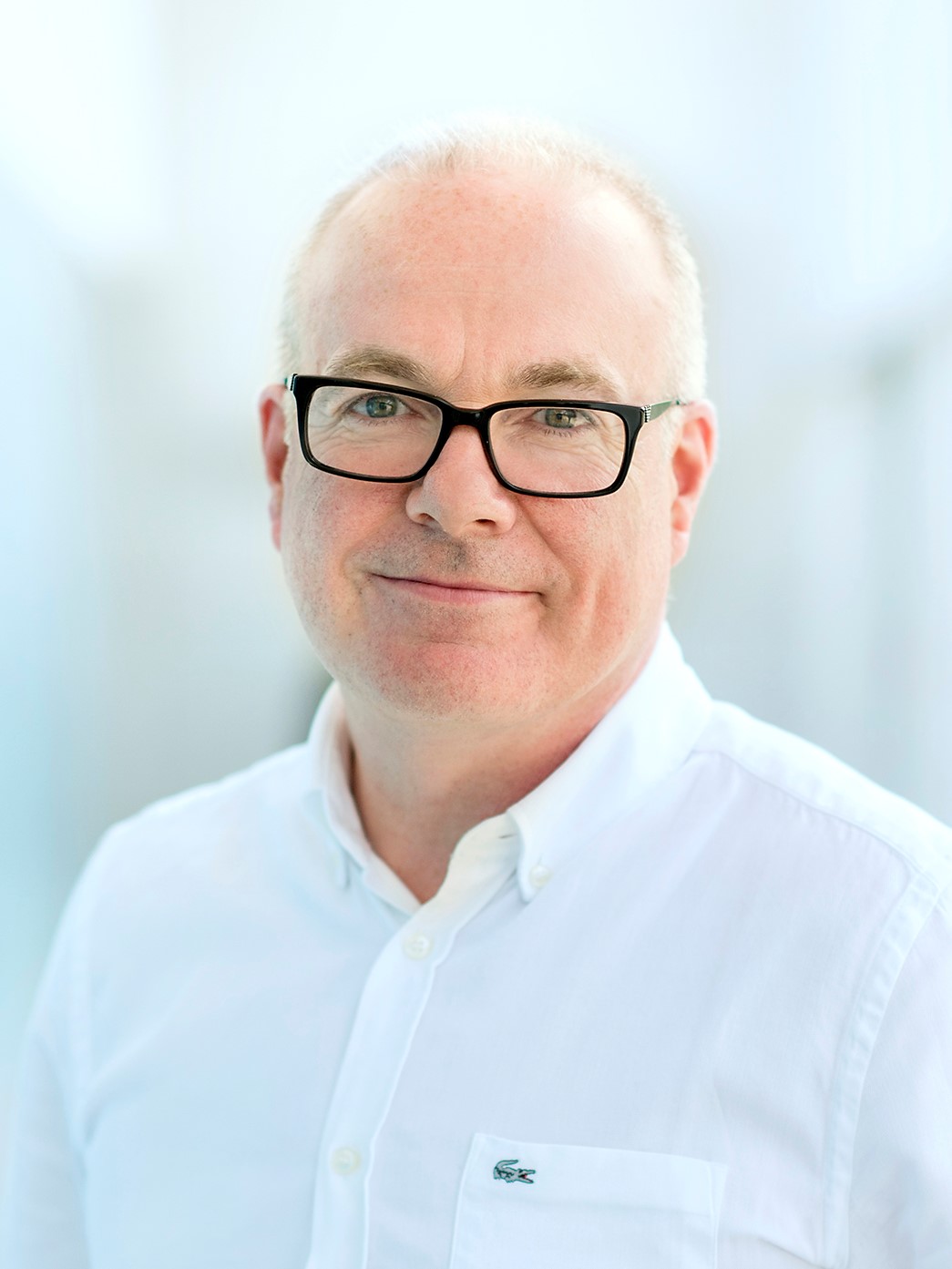 Mr Bill Nicholl
Mr Bill Nicholl
Faculty of Education・Homerton College
Mr Bill Nicholl is an inspiring lecturer and an innovative pedagogical leader, especially with regard to the education and training of future teachers in the area of Design and Technology. His approach focuses on issues that plague the teaching of the subject, addressing the need to teach for design creativity and emphasising the important role of the teacher in such a focus. Bill’s innovative approach is recognised nationally and internationally through his research work on fixation and creative climate and, more recently, on design and empathy.
This work has developed an approach to the teaching of Design that is philosophically and psychologically grounded and comes in the form of a set of innovative teaching tools. Bill also developed course content for teaching on the role of Design in relation to discourses around race, illustrating his desire to see Design education contribute to debates around inclusion. Bill’s research-based pedagogy has influenced policy and practice beyond his teaching in the Faculty, and his teaching has been evaluated as outstanding by students and other stakeholders throughout his tenure in the Faculty.
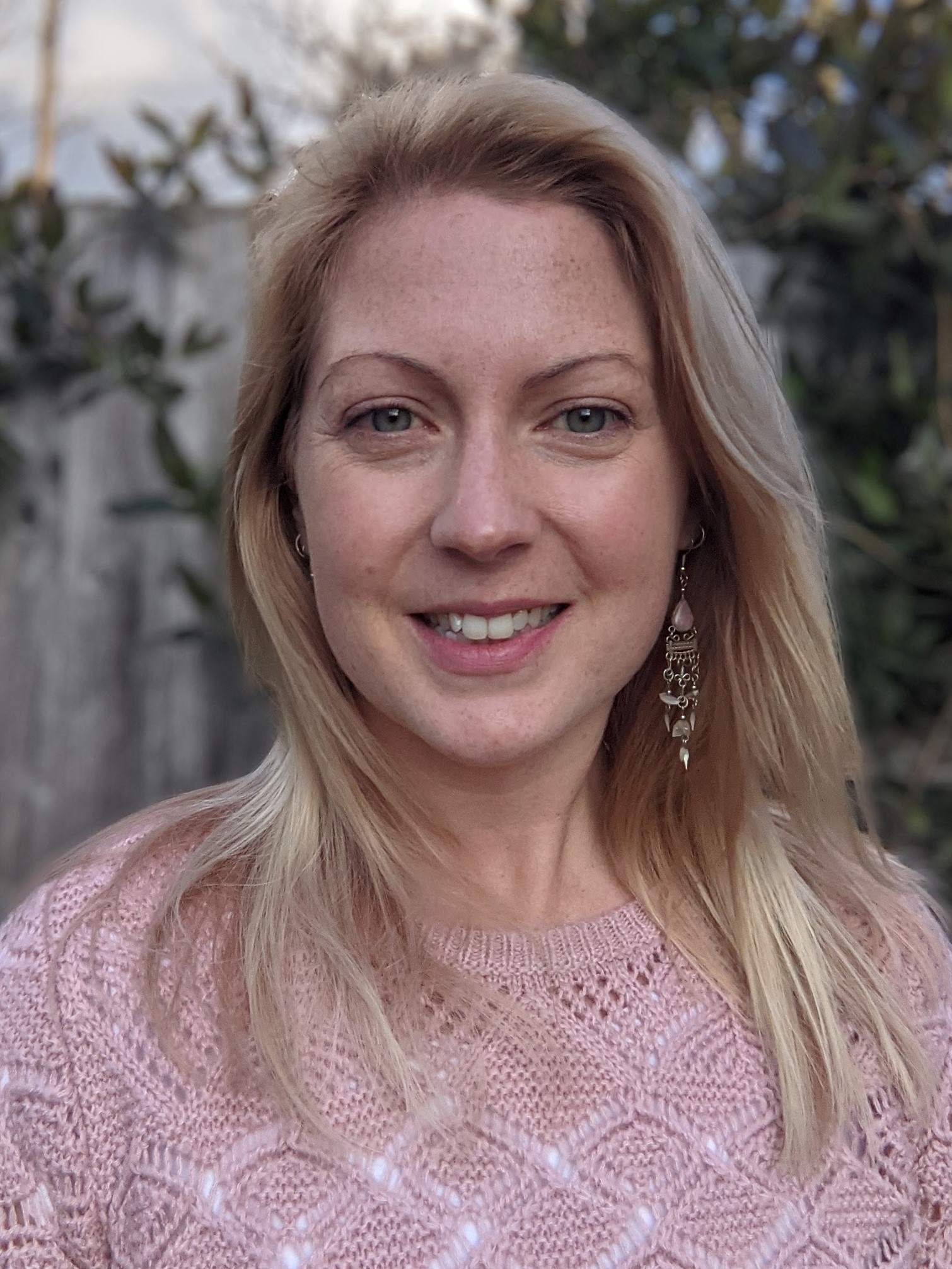 Dr Tina Potter
Dr Tina Potter
Department of Physics・Newnham College
Dr Tina Potter is an extraordinary teacher and diversity champion and has contributed in an outstanding fashion to the teaching programme in physics. Since joining the department in 2015, she has overhauled the Part II lecture course in Particle and Nuclear Physics, which is one of the most challenging topics to teach at the undergraduate level. She has ensured that this is the most popular of the optional courses in Part II physics, and regularly receives the best student feedback for this lecture course, as well as for her projects and research reviews that are also extremely popular despite their challenging topics.
In her roles as a member of the teaching committee, deputy senior examiner for part III, and chair of the Cavendish community forum, Tina is a strong advocate for diversity in the Department and for mentoring undergraduate students. She has furthermore played a pivotal role in adapting our teaching and assessment practice to the current COVID pandemic.
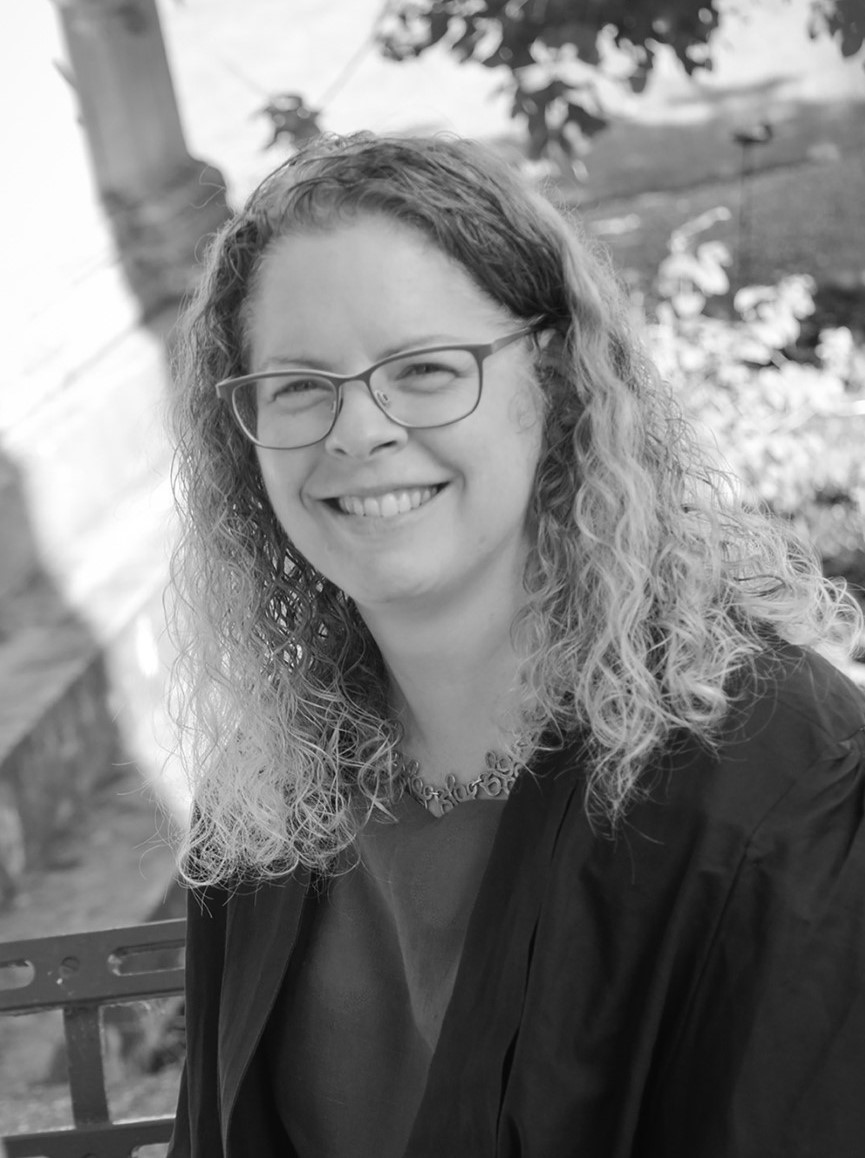 Dr Dee Scadden
Dr Dee Scadden
Department of Biochemistry・Downing College
Dr Dee Scadden is a leading figure in the University for her work in developing online teaching resources and her longstanding work in this area has been recognised nationally. Her unique expertise and tireless commitment were recently crucial in allowing the successful move, in response to the Covid pandemic, of Departments across the School of Biological Sciences to teaching and examining online, all accomplished with very little notice.
Dee has also developed outstanding online resources for the material she teaches herself, and is an extremely effective and successful in-person teacher, both didactically in lectures and in practical classes. As Director of Teaching in the Department of Biochemistry Dee continues to inspire, motivate and support her colleagues in developing imaginative and academically rigorous online resources.
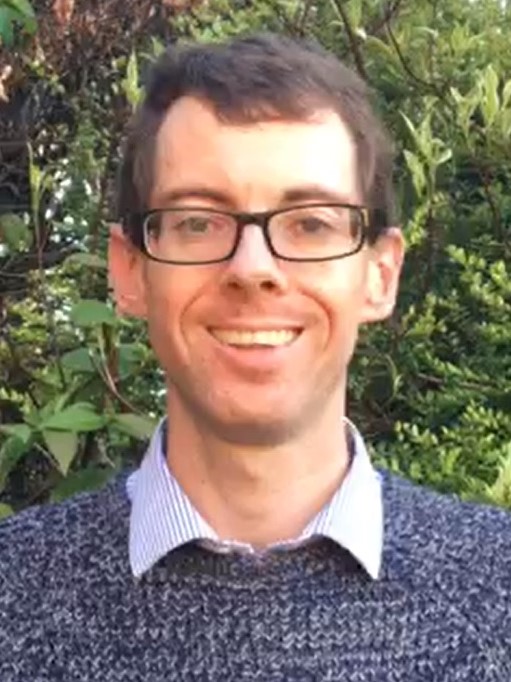 Dr Peter Sloman
Dr Peter Sloman
Department of Politics & International Studies・Churchill College
Dr Peter Sloman is an outstanding and deeply committed teacher. Since arriving in Cambridge in 2015, he has been the heart and soul of the new History & Politics Tripos, in effect building it from scratch over the last five years. As chair of the Tripos Management Committee, Peter led each aspect of its development from outreach and admissions to course delivery, and formed the main point of contact for students until the first cohort graduated in 2020. Applications for History & Politics have risen strongly year-on-year, and the Tripos has become one of the most successful programmes across the University in widening participation.
Students often rate Peter as the best lecturer they have ever had, and he has helped to make British and European Politics one of the Department’s largest and most popular third-year papers. This stellar feedback is mirrored by his students at Churchill College. Finally, he has played a leading role in departmental outreach as founding editor of the In The Long Run blog and a contributor to the Talking Politics podcast.
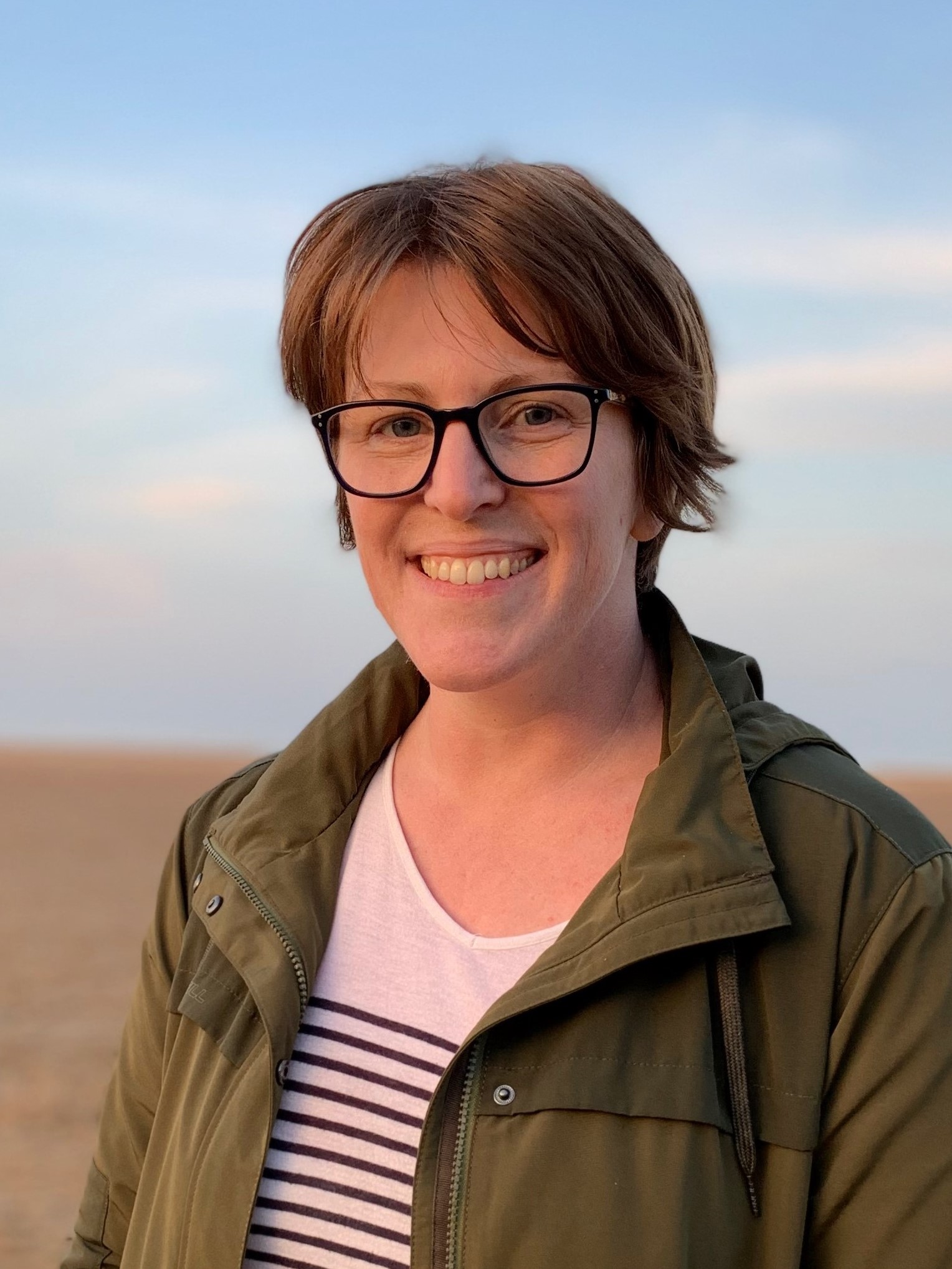 Dr Anne Swift
Dr Anne Swift
Department of Public Health & Primary Care
Dr Anne Swift joined the Department of Public Health and Primary Care in January 2016. Since then she has delivered outstanding public health education to the clinical medical students through large- and small-group teaching, for which she receives excellent evaluations, and is frequently referred to by name in student feedback as an “enthusiastic”, “passionate” and “interactive” lecturer. She is a student-centred teacher, having worked with students to produce new sessions on public health issues of importance to the student body such as nutrition, LGBT+ health and disability awareness.
Anne has introduced innovative teaching methods, including a collaboration with a drama company to convey the complexity of intimate partner violence, and has recruited national experts to ensure state-of-the-art teaching on a variety of key topics. In particular, her team’s work on global health teaching has been nationally recognised as exemplary.
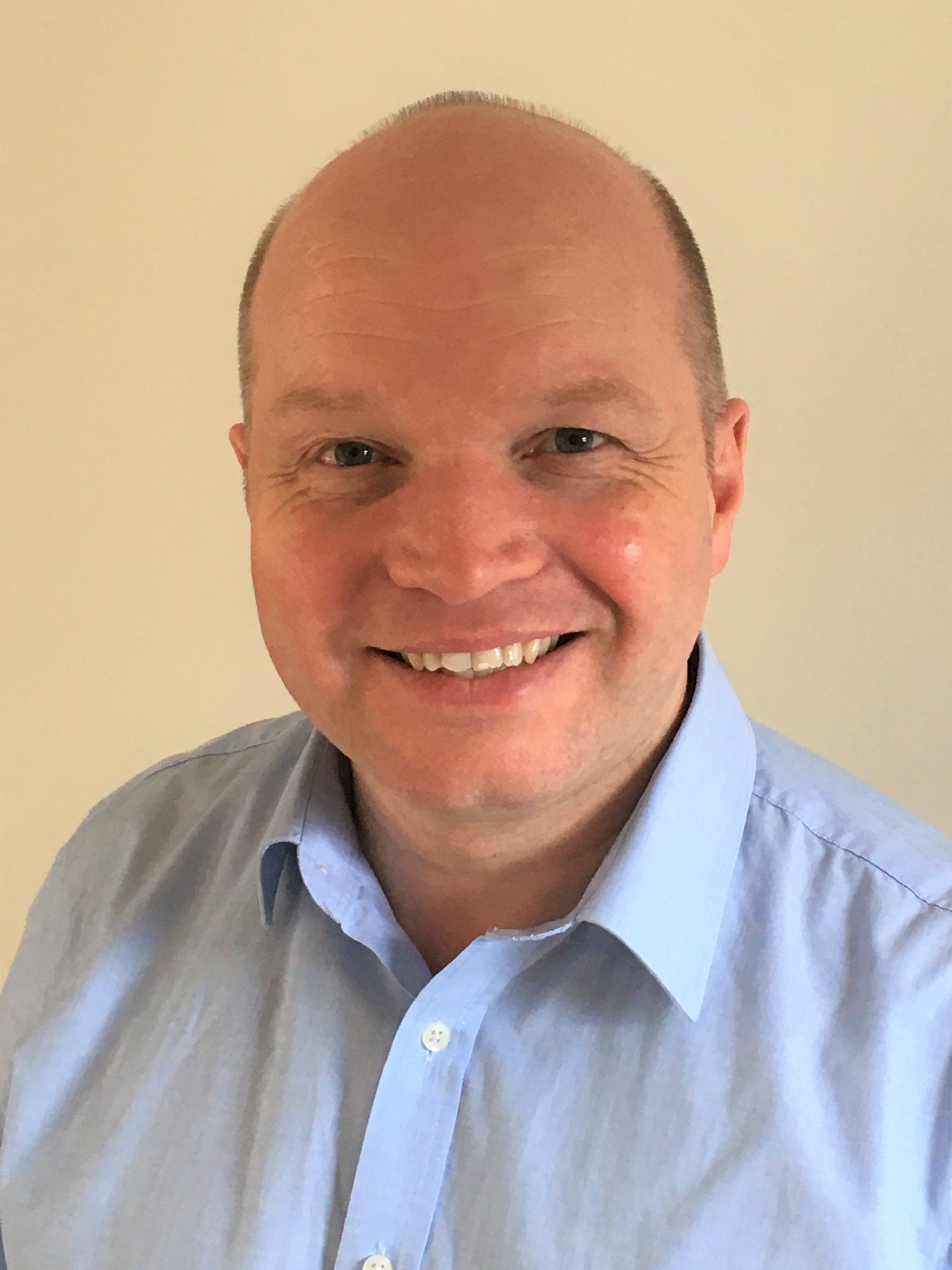 Mr Alan Thorne
Mr Alan Thorne
Department of Engineering
Since 1995, Mr Alan Thorne has been tirelessly optimising the learning experience of Automation for Manufacturing Engineering students. Thanks to his leadership, the ‘Robot Lab’ has become one of the defining features of the Manufacturing Engineering Tripos, that students regularly cite as ‘the highlight of the course’. The Robot Lab is a two-week, team-based exercise to design and implement a fully automated production process. It engages the whole year-group around a common task, reflecting real industrial practice through the blending of technical and organisational, and individual and team activities. Every year, Alan seeks to enhance the learning experience, incorporating advances in automation technologies from industrial practice.
Faced with the impact of Covid this year, Alan could have opted to replace the Lab with something much simpler (and easier for him). Instead, he re-doubled his efforts and designed ‘blended’ and fully online versions of the Lab so that none of this year’s students would be short-changed on their Robot Lab experience, whatever the impact of lockdown. And all of this is just one part of his teaching and outreach work. Alan is an exemplary educator who is relentlessly focused on enhancing the student learning experience, and has done so tirelessly for a quarter of a century.
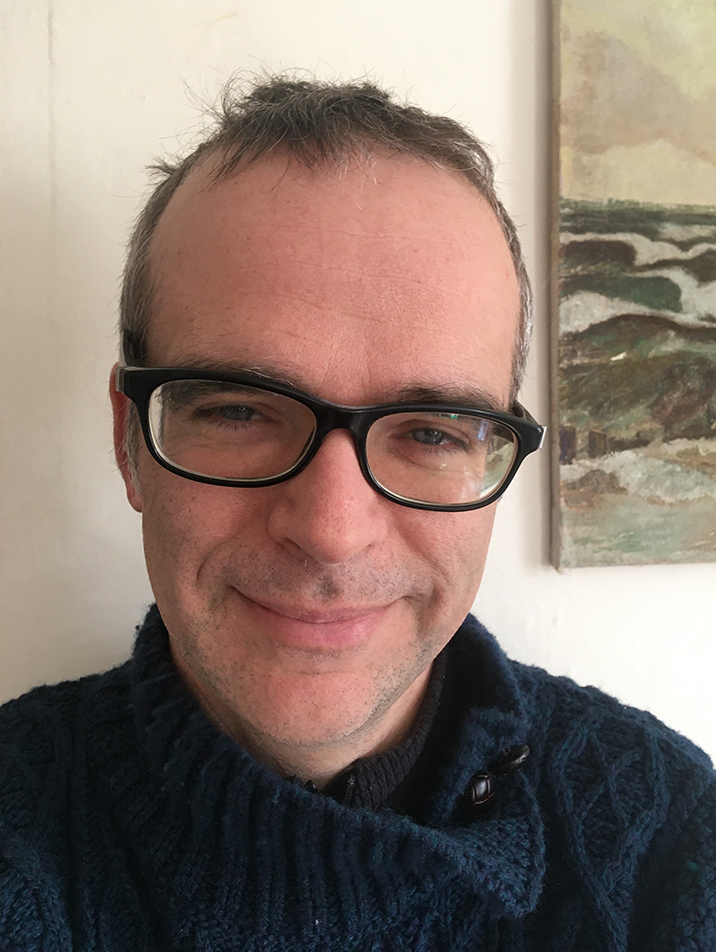 Dr Edward Tipper
Dr Edward Tipper
Department of Earth Sciences・St John's College
Dr Edward Tipper is deeply committed to teaching and education in the Department of Earth Sciences. Along with his record as an inspired instructor, course coordinator and deputy director of Teaching, he has made it his business to keep the whole of our teaching programme ahead of the curve. Edward has directed our first-year course for the past six years, skilfully directing the day-to-day logistics of lectures, practicals and (multiple) student field trips, while also pursuing its larger-scale strategy and development.
Over the summer of 2020 he master-minded our Covid response, allowing the Department to deliver a full slate of in-person practical sessions through Michaelmas term – a truly heroic task. In his own field, Edward has revolutionized the way in which students explore geochemical data through the development of computer-based exercises in his third- and fourth-year courses. At the same time, he has introduced unprecedented numbers of undergraduate students to the excitement and challenge of conducting real-world fieldwork: over the past six years he has taken nine students to collect their own research data while white-water rafting down the rivers of South East Asia!
